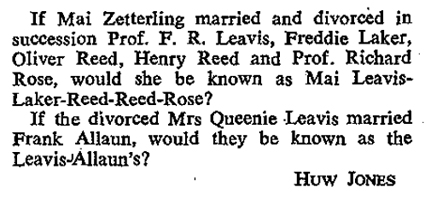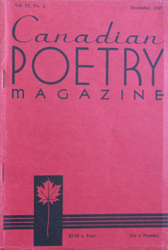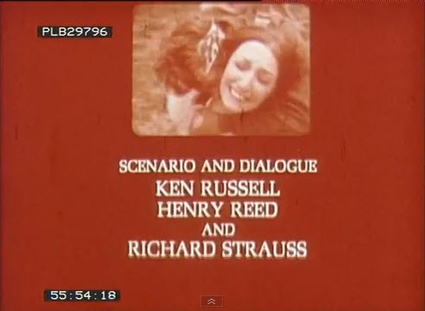Here's audio of Dylan Thomas reading "Chard Whitlow" on YouTube. Thomas was also fond of "Naming of Parts," and often chose to recite Reed's poems for public appearances and recitals. This recording comes from the Dylan Thomas Caedmon Collection, discussed here previously.
The video's creator, poetictouch, has a Facebook page with more poetry readings, if you MyFace.
|
Listeners, Who Have Turned Off the Wireless
LOLReed IVHere's a nice little piece of pop culture, which is not only a good laugh, but a good gauge of where Reed stood in the public eye in his later life. The New Statesman's reader competition for June 22, 1973:
Weekend Competition No 2,261And the results, published on July 13: Result of No 2,261Those printed included: If Maude Gonne could have married Richard West, would she have been known as Maude Gonne-West?And the entry which caught our attention: If Mai Zetterling married and divorced in succession Prof. F. R. Leavis, Freddie Laker, Oliver Reed, Henry Reed, and Prof. Richard Rose, would she be known as Mai Leavis-Laker-Reed-Reed-Rose?  Mai Zetterling was a Swedish-born actress; F.R. Leavis was, of course, a distinguished literary critic; Frederick Laker was an airline entrepreneur; Oliver Reed played Athos in The Three Musketeers and should need no introduction; and Richard Rose is an American political scientist who has taught primarily in the UK, and has a CV as long as my arm. The pun is a play on Burns, and I had to sound it out, twice.
Dance of the Seven VeilsOmnibus now presents a new film by Ken Russell: Dance of the Seven Veils. It's been described as a harsh, and at times, violent caricature of the life of the composer Richard Strauss. This is a personal interpretation by Ken Russell, of certain real—and many imaginary—events in the composer's life. Among them are dramatised sequences about the war, and the Nazi persecution of the Jews, which includes scenes of considerable violence, and horror. I have mentioned previously Reed's final foray into television: in 1969 he delivered a preliminary screen treatment on Strauss, but it was clear that director Ken Russell was not interested in filming a straight-up, chronological biography. Instead, it would be "all dancing and no acting." Unbelievably, Reed still shares credit for the script and scenario: (Via Wonders in the Dark.)
Henry Reed in Canadian Poetry, Eh?A brief review of the 1946 Canadian printing of Henry Reed's A Map of Verona appears in the March, 1947 issue of Canadian Poetry Magazine, which alludes to "Naming of Parts" and "Chard Whitlow," but lingers on Reed's monologues from Greek myth:
 Reed, Henry: A Map of Verona; Clarke Irwin, Toronto (Cape, London); 59 pp.; $1.00. In the section called Preludes, Mr. Reed shows a neat wit and humanity in parodies of army instruction and of T. S. Eliot in his oracularly non-committal vein. The more serious poems, through a variety of vividly realised images and legends, explore for the most part problems of personal responsibility and activity, and the individual's relation to the life of the community. The prevailing images are of sea and shore, under extremes of heat and cold, the mood strenuous and the expression tense and forceful. The last poems, which deal dramatically, through the figures of Electra's sister Chrysothemis, and of Philoctetes, with the problem of those who would derive a conscious innocence from a weak amiability, or whom justified resentment might tempt into isolation, combine admirably a sustained relevance to their dramatic situation with a broader reference to problems that are perhaps more pressing and more universal now than they have ever been. The paper is not the best, but the printing and binding compare favorably with Canadian books at double the price. L.A.M. This critique was written by Professor Louis MacKay (1901-1982), who was, at the time, with the Department of Classics at the University of British Columbia, in Vancouver. Hilariously, MacKay was on the staff of the Canadian Forum in 1938 when a poetry chapbook by John Smalacombe, Viper's Bugloss, was submitted for review. MacKay penned a rather unfavorable review (Smalacombe did not "know a sibilant from a snake in the grass"), to which the author replied with a furious, eloquent rebuttal. The Forum had already published both Smalacombe's self-defense and a counter-attack by MacKay before the editors detected any hanky-panky: Smalacombe was actually MacKay's pseudonym; it was his own poetry (Earle Birney, Spreading Time: Remarks on Canadian Writing and Writers, 1904-1949, 1989).
|
||||||||||||||||||||||||||
|
|
|||||||||||||||||||||||||||








